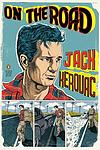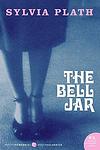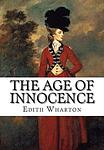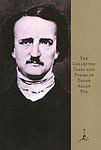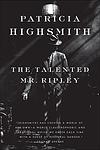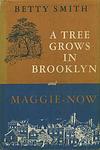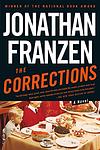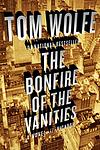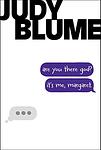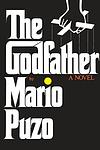The Greatest "Fiction, New York" Books of All Time
Click to learn how this list is calculated.
This list represents a comprehensive and trusted collection of the greatest books. Developed through a specialized algorithm, it brings together 300 'best of' book lists to form a definitive guide to the world's most acclaimed books. For those interested in how these books are chosen, additional details can be found on the rankings page.
Genres
The "New York" category of books typically refers to literature that is set in or explores the city of New York. These books may focus on the city's history, culture, and landmarks, or they may delve into the lives of its diverse inhabitants. From gritty crime novels to romantic comedies, the "New York" category encompasses a wide range of genres and styles, all united by their connection to one of the world's most iconic cities. Whether you're a native New Yorker or a curious outsider, these books offer a unique glimpse into the heart of the Big Apple.
Countries
Date Range
Reading Statistics
Click the button below to see how many of these books you've read!
Download
If you're interested in downloading this list as a CSV file for use in a spreadsheet application, you can easily do so by clicking the button below. Please note that to ensure a manageable file size and faster download, the CSV will include details for only the first 500 books.
Download-
1. The Great Gatsby by F. Scott Fitzgerald
Set in the summer of 1922, the novel follows the life of a young and mysterious millionaire, his extravagant lifestyle in Long Island, and his obsessive love for a beautiful former debutante. As the story unfolds, the millionaire's dark secrets and the corrupt reality of the American dream during the Jazz Age are revealed. The narrative is a critique of the hedonistic excess and moral decay of the era, ultimately leading to tragic consequences.
-
2. The Catcher in the Rye by J. D. Salinger
The novel follows the story of a teenager named Holden Caulfield, who has just been expelled from his prep school. The narrative unfolds over the course of three days, during which Holden experiences various forms of alienation and his mental state continues to unravel. He criticizes the adult world as "phony" and struggles with his own transition into adulthood. The book is a profound exploration of teenage rebellion, alienation, and the loss of innocence.
-
3. Invisible Man by Ralph Ellison
The novel is a poignant exploration of a young African-American man's journey through life, where he grapples with issues of race, identity, and individuality in mid-20th-century America. The protagonist, who remains unnamed throughout the story, considers himself socially invisible due to his race. The narrative follows his experiences from the South to the North, from being a student to a worker, and his involvement in the Brotherhood, a political organization. The book is a profound critique of societal norms and racial prejudice, highlighting the protagonist's struggle to assert his identity in a world that refuses to see him.
-
4. On the Road by Jack Kerouac
This novel follows the story of a young man and his friend as they embark on a series of cross-country road trips across America during the late 1940s and early 1950s. The protagonist, driven by a desire for freedom and a quest for identity, encounters a series of eccentric characters and experiences the highs and lows of the Beat Generation. The narrative is a testament to the restlessness of youth and the allure of adventure, underscored by themes of jazz, poetry, and drug use.
-
5. The Bell Jar by Sylvia Plath
The novel follows the story of a young woman who wins a guest editorship at a magazine in New York City and, after a series of personal and professional disappointments, suffers a mental breakdown and returns to her family, where she continues to struggle with depression and suicidal thoughts. The protagonist's experiences in psychiatric institutions and her attempts to reclaim her life are depicted with brutal honesty, making it a poignant exploration of mental illness and the societal pressures faced by women in the mid-20th century.
-
6. The Age of Innocence by Edith Wharton
Set in the 1870s, the novel revolves around Newland Archer, a young lawyer from New York's high society, who is engaged to the beautiful and conventional May Welland. His life takes a turn when he meets May's cousin, the Countess Ellen Olenska, who has returned from Europe after leaving her scandalous husband. Torn between his duty and passion, Archer struggles with the constraints of the society he is a part of. The book offers a vivid portrayal of the struggle between individual desires and societal expectations in the upper-class New York society of the late 19th century.
-
7. A Farewell to Arms by Ernest Hemingway
Set during World War I, the novel follows an American ambulance driver in the Italian army and his love affair with a British nurse. The story is a first-person account of the protagonist's experiences in war and his struggle to survive amidst chaos and destruction. The narrative explores themes of love, war, and the fragility of life, culminating in a tragic ending that underscores the futile nature of war and the inevitable suffering it brings.
-
8. The Complete Tales and Poems of Edgar Allan Poe by Edgar Allan Poe
This collection brings together all of the author's most famous works, including poems, short stories, and novellas. Known for his macabre and gothic storytelling, the author's works are filled with themes of death, love lost, and human frailty. Notable inclusions are the haunting poem "The Raven," the chilling stories "The Tell-Tale Heart" and "The Fall of the House of Usher," and his only complete novel, "The Narrative of Arthur Gordon Pym."
-
9. Portnoy's Complaint by Philip Roth
The novel is a first-person narrative, a monologue by a young Jewish man, Alexander Portnoy, who is speaking to his psychoanalyst. He shares his struggles with his identity as a Jewish man in America, his sexual fantasies and frustrations, his complex relationship with his overbearing mother, and his experiences of guilt and shame. The book uses humor and frank language to explore themes of identity, sexuality, and the Jewish experience in America.
-
10. The House of Mirth by Edith Wharton
Set in the backdrop of New York's high society during the turn of the 20th century, the novel follows the life of Lily Bart, a beautiful but impoverished woman of social standing. As she navigates the pressures and expectations of her social circle, Lily grapples with the need to secure a wealthy husband to maintain her lifestyle. However, her romantic inclinations and her desire for personal freedom come into conflict with societal norms, leading to her tragic downfall.
-
11. The Talented Mr. Ripley by Patricia Highsmith
The Talented Mr. Ripley is a psychological thriller that follows the story of Tom Ripley, a young man struggling to make ends meet in New York City. When a wealthy shipbuilder mistakes Tom for a close friend of his son, Dickie Greenleaf, he offers him an all-expenses-paid trip to Italy to persuade his wayward son to return home. Instead, Tom becomes obsessed with the luxurious lifestyle of Dickie and his girlfriend, Marge, and goes to extreme lengths to make it his own, including identity theft and murder.
-
12. An American Tragedy by Theodore Dreiser
This classic novel explores the dark side of the American Dream through the story of a young man who, despite his humble beginnings, aspires to climb the social ladder. He becomes involved with two women, one wealthy and one from a working-class background. His ambition and desire for status lead him to commit a crime that ultimately results in his downfall. The novel is a stark examination of the destructive power of unchecked ambition and the moral compromises people are willing to make in pursuit of wealth and status.
-
13. Herzog by Saul Bellow
The novel centers around Moses Herzog, a middle-aged, intelligent yet distressed man who is going through a mid-life crisis. After his second marriage fails, he falls into a state of emotional turmoil and begins writing letters to friends, family, and even famous figures, expressing his philosophical thoughts and personal feelings. His journey of self-discovery and understanding forms the crux of the story. It's a profound exploration of a man's struggle with the complexities of life and his quest for meaning.
-
14. U.S.A. Trilogy by John Dos Passos
The U.S.A. Trilogy is a series of three novels that chronicle the lives of various characters in the first half of the 20th century in the United States. The narrative intertwines the stories of twelve characters as they navigate the societal changes and upheavals of the era, including World War I, the Great Depression, and the rise of Hollywood. The author uses a unique narrative technique that combines traditional prose, newspaper-style headlines, biographies, and stream-of-consciousness writing to paint a vivid picture of American life during this period.
-
15. A Tree Grows in Brooklyn by Betty Smith
This classic novel follows the life of Francie Nolan, a young girl growing up in the slums of early 20th century Brooklyn. The narrative explores her experiences with poverty, her pursuit of education, and her dreams of a better life. The tree in the title serves as a symbol of her resilience and hope, growing and thriving despite the harsh conditions around it, much like Francie herself.
-
16. Atlas Shrugged by Ayn Rand
This novel unfolds in a dystopian United States where society's most productive citizens, including inventors, scientists and industrialists, refuse to be exploited by increasing social and economic demands. As a response, they withdraw their talents, leading to the collapse of the economy. The story presents the author's philosophy of objectivism, which values reason, individualism, and capitalism, and rejects collectivism and altruism. The narrative primarily follows Dagny Taggart, a railroad executive, and John Galt, a philosophical leader and inventor, as they navigate this societal breakdown.
-
17. Tropic of Cancer by Henry Miller
The book is a semi-autobiographical novel set in 1930s Paris and describes the protagonist's life as a struggling writer. The narrative is filled with vivid descriptions of the city, sexual encounters, and philosophical musings, all penned in a stream-of-consciousness style. The protagonist's experiences living in poverty, his relationships with other expatriates, and his pursuit of artistic freedom are central to the story. Despite the explicit content, the novel is noted for its candid exploration of the human condition and the author's quest for personal and creative authenticity.
-
18. The Corrections by Jonathan Franzen
The novel revolves around the lives of the Lambert family, an old-fashioned midwestern couple and their three adult children. The parents, Alfred and Enid, are dealing with Alfred's Parkinson's disease and their own marital problems, while their children are each facing their own personal and professional crises. The narrative explores the themes of family dynamics, societal expectations, and the struggles of modern life. The story climaxes with the family's last Christmas together at their childhood home.
-
19. Bonfire of the Vanities by Tom Wolfe
This novel follows the life of a successful Wall Street bond trader who, after a wrong turn in the Bronx, finds his life spiraling out of control. After a hit-and-run accident in a predominantly black neighborhood, he becomes the target of a political witch hunt, exacerbating racial tensions in the city. As the protagonist's world unravels, the story provides a satirical commentary on 1980s New York City, exploring themes of racism, classism, politics, and greed.
-
20. Go Tell it on the Mountain by James Baldwin
This novel explores the role of the Christian Church in the lives of African-Americans, both as a source of repression and moral hypocrisy and as a source of inspiration and community. It also, more broadly, examines the role of the Pentecostal Church in the African American experience. The narrative focuses on a fourteen-year-old boy's struggle to discover his identity amidst a family filled with secrets and a life marked by a religious community's strict moral code.
-
21. Are You There God? It's Me, Margaret by Judy Blume
The book is a coming-of-age story about a sixth-grade girl who is growing up without a religious affiliation, due to her parents' interfaith marriage. The protagonist is in search of a single religion while also confronting typical pre-teen issues such as buying her first bra, having her first period, coping with crushes and the changes that come with growing up. The book explores themes of friendship, religion, love, and self-identity.
-
22. The Godfather by Mario Puzo
The book revolves around the powerful Italian-American crime family of Don Vito Corleone. When the don's youngest son, Michael, reluctantly joins the mafia, he becomes involved in the inevitable cycle of violence and betrayal. Although Michael tries to maintain a normal relationship with his wife, Kay, he is drawn deeper into the family business. The narrative follows the Corleone family's struggle to hold onto power in a rapidly changing world, as well as Michael's transformation from reluctant family outsider to ruthless mafia boss.
-
23. The Amazing Adventures of Kavalier and Clay by Michael Chabon
The book follows the lives of two Jewish cousins, one a skilled escape artist and the other a talented artist, before, during, and after World War II. They create a popular comic book superhero, which brings them fame and fortune. However, their success is complicated by personal struggles, including the escape artist's attempts to rescue his family from Nazi-occupied Prague and the artist's struggle with his sexuality. The narrative explores themes of escapism, identity, and the golden age of comic books.
-
24. The Stories of John Cheever by John Cheever
This collection of short stories provides an intimate look into the lives of individuals living in the American suburbs during the mid-20th century. The narratives often center around themes of love, loss, and the pursuit of the American dream, painting a vivid picture of the human condition. The characters are typically middle-class individuals dealing with personal crises, existential dread, and the often harsh realities of everyday life. The stories are renowned for their ability to capture the essence of post-war America, with all of its beauty, despair, and complexity.
-
25. Money by Martin Amis
"Money" is a darkly humorous novel that follows the life of John Self, a hedonistic, self-destructive director of commercials, as he navigates the excesses and depravities of 1980s New York and London. His life is filled with overindulgence in food, alcohol, drugs, and women, leading to a downward spiral of self-destruction. The novel is a satire on the excesses of capitalism and the obsession with wealth and materialism, and it also explores themes of identity, self-loathing, and the destructive power of addiction.
Reading Statistics
Click the button below to see how many of these books you've read!
Download
If you're interested in downloading this list as a CSV file for use in a spreadsheet application, you can easily do so by clicking the button below. Please note that to ensure a manageable file size and faster download, the CSV will include details for only the first 500 books.
Download


